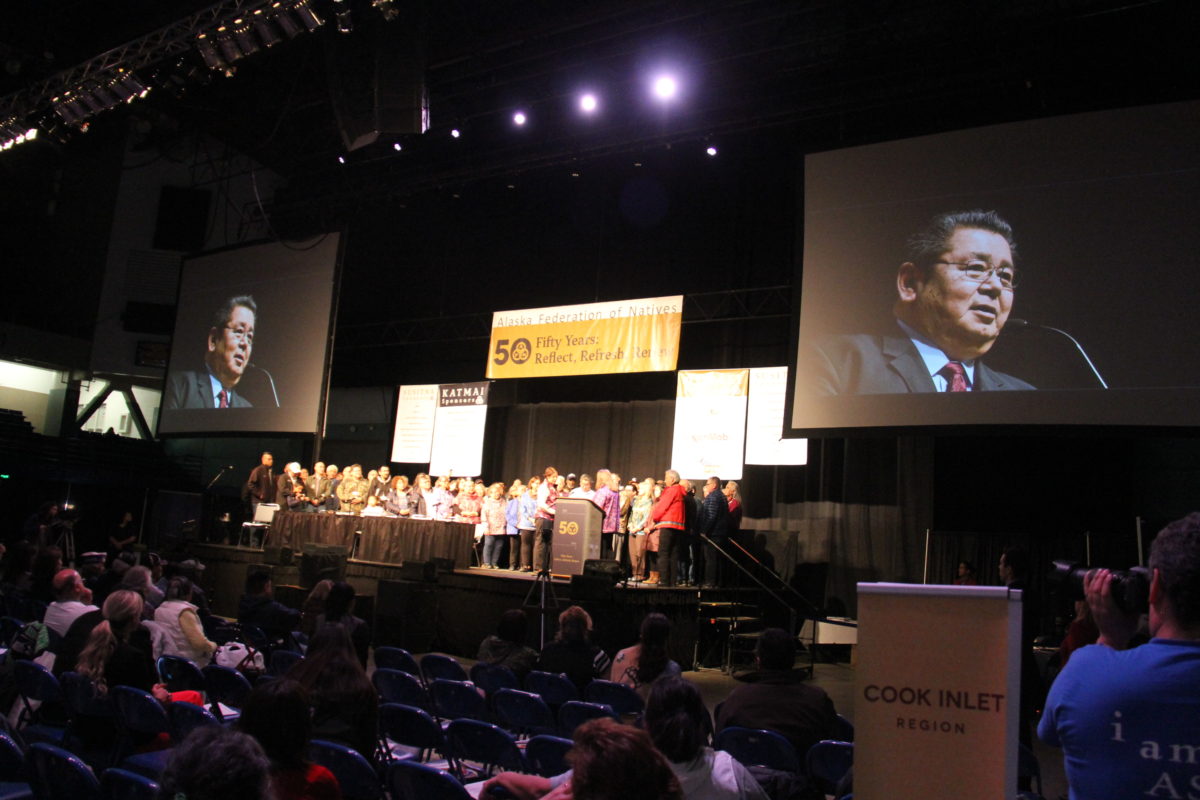
- Details
- By Elyse Wild, Tribal Business News
JUNEAU — The largest federally recognized tribe in Alaska and a nonprofit representing 39 villages said they are withdrawing from the largest Native organization in the state.
The Central Council of the Tlingit & Haida Indian Tribes of Alaska (Tlingit & Haida) announced yesterday it will not be renewing its membership to the Alaska Federation of Natives (AFN), effective immediately.
With more than 35,000 tribal citizens, Tlingit & Haida has been a long-standing member of AFN, which was formed in 1966 to advocate for the cultural, economic, and political priorities of Alaska Natives.
According to its website, AFN represents more than 140,000 Native peoples, 185 village corporations and ten regional corporations.
Tlingit & Haida’s Executive Council voted to end its membership with AFN during a meeting held on May 1, 2023.
In a separate announcement, the Fairbanks-based Tanana Chiefs Conference (TCC), which represents 39 Alaska Native villages and 37 federally recognized tribes, also said it would be leaving AFN. A statement from the TCC indicated the lack of progress on its core issues were the reasons behind the decision.
“TCC Tribal leaders have made it clear that the biggest priority for them is the protection of our salmon and ways of life,” the statement said. “Over the past few years, over 40 resolutions were passed by the full board at AFN that support a subsistence way of life, but no significant action has been taken on those directives.”
Yesterday’s announcements were the latest in a series of defections from AFN since 2019, when the board of Arctic Slope Regional Corp., which represents shareholders from the oil-rich North Slope region, withdrew from AFN.
In 2020, the board of Doyon, Ltd, followed suit. Doyon, which represents Alaska Native shareholders from the Interior, is the largest private landowner in the state.
Last fall, Aleut Corp., which represents shareholders from the Aleutian Islands region, decided that it would not renew its membership this year in response to the way AFN handled a resolution about declining salmon runs.
In a statement released yesterday, representatives of the Tlingit & Haida cited sovereignty and self-determination behind the exit.
“From protecting our lands, waters, and way of life to advocating on behalf of our communities and for the need for wellness, healing, protection, and support for our tribal citizens and families, we’ve carved our own path and know the solutions that are needed,” Second Vice President Rob Sanderson Jr. said in a statement. “It is critical we do the work every day exercising our sovereignty and to be intentional and focused on elevating the voice of our Tribe and representing the people we serve.”
Tlingit & Haida President Richard Chalyee Éesh Peterson said the Tribe has been working for the better part of a decade to strengthen sovereignty through economic development and establishing infrastructure to advance the Tribe’s priorities.
“It has always been in the best interest of the Tribe to directly promote, advance, and advocate for our people and communities, and we have positioned the Tribe and strategically built our capacity to do just that,” Peterson said. “The truth of the matter is our Executive Council has diverse areas of expertise, and this has been a true strength in the governance of our Tribe. We have also built up a Governmental Affairs team that supports our work on important legislation, federal/state tribal issues, budget priorities, and funding opportunities. We will continue to collaborate with AFN where it is needed.”
Last week, Tlingit & Haida announced plans to launch a bingo operation in downtown Juneau. The group also acquired a hospitality property in March with a total assessed value of $3.7 million.
AFN President Julie Kitka told the media that the organization will wait to comment on the withdrawal until after its board meeting next week.
Help us defend tribal sovereignty.
At Native News Online, our mission is rooted in telling the stories that strengthen sovereignty and uplift Indigenous voices — not just at year’s end, but every single day.
Because of your generosity last year, we were able to keep our reporters on the ground in tribal communities, at national gatherings and in the halls of Congress — covering the issues that matter most to Indian Country: sovereignty, culture, education, health and economic opportunity.
That support sustained us through a tough year in 2025. Now, as we look to the year ahead, we need your help right now to ensure warrior journalism remains strong — reporting that defends tribal sovereignty, amplifies Native truth, and holds power accountable.
 The stakes couldn't be higher. Your support keeps Native voices heard, Native stories told and Native sovereignty defended.
The stakes couldn't be higher. Your support keeps Native voices heard, Native stories told and Native sovereignty defended.
Stand with Warrior Journalism today.
Levi Rickert (Potawatomi), Editor & Publisher

